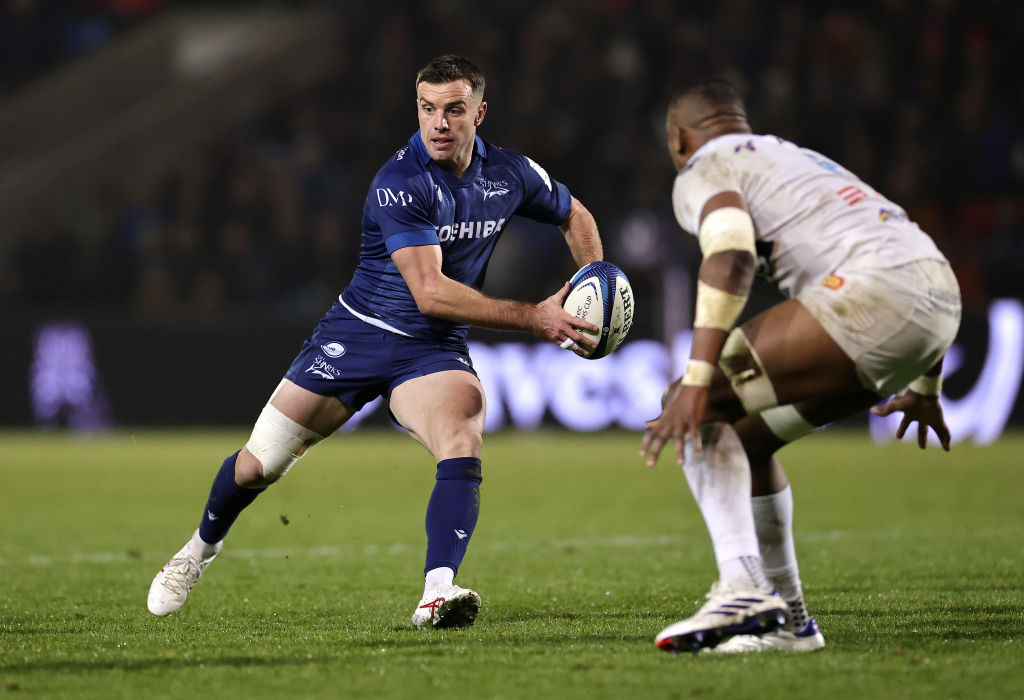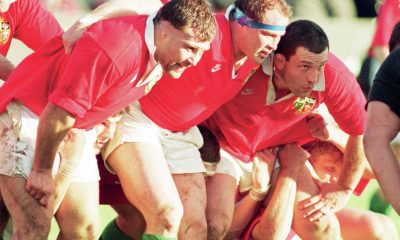 I often wonder if Premiership Rugby chief executive Mark McCafferty is living in the real world or one that is dominated solely by what is good for the Premiership clubs. Last week’s article in The Rugby Paper promising no u-turn on Europe seems to me as a statement that was designed to send a wave of terror through our Celtic and Italian cousins, when in reality it is PRL that should be worried.
I often wonder if Premiership Rugby chief executive Mark McCafferty is living in the real world or one that is dominated solely by what is good for the Premiership clubs. Last week’s article in The Rugby Paper promising no u-turn on Europe seems to me as a statement that was designed to send a wave of terror through our Celtic and Italian cousins, when in reality it is PRL that should be worried.
Although McCafferty has insisted that the French clubs are more determined than PRL to implement change in the way that the European competitions are structured, it is also true that the French have said that they do not want to pull out of the competition, even if there isn’t any change.
What McCafferty seems to be trying to sell to both the French and the RaboDirect is an increase in funds for a reduced number of games played and teams taking part.
With six from each league there would be a reduction in the number of teams but only in those from the RaboDirect, both the French Top 14 and the Premiership will retain the six that they now have, while in all probability both Wales and Ireland will be expected to lose a team or two, given that both Scotland and Italy will be guaranteed a place even if they finish outside the qualifying top six.
Admittedly that should ‘heat up’ the levels of competition in the RaboDirect with only the top four qualifying but that could potentially leave either Ireland or Wales with limited representation.
Ah, but the extra money, McCafferty will say, it is a sweetener for all as it will increase the overall earnings from TV from around £40m to just over £70m a year.
However judging by the figures in last weeks’ report both the Top 14 and the PRL stand to gain around £14m (increasing from £10.56 to £24m) while the RaboDirect will only get just over an extra £1m (up from £22.8m to £24m) hardly an incentive for change.
It may seem a little unfair that the Rabo share is currently twice as much as both the Top 14 and the Premiership but the fact that the Rabo money is split between Wales, Ireland, Scotland and Italy it actually works out at around £5.7m – half as much as England or France.
I must admit that I am struggling to understand the figures quoted because the original PRL deal with BT was for around £152m over four years for all Premiership games and three years for European games but the new figure quoted is £70m a year for European games which is £280m in total, almost double the original combined figure.
That is unless it is £24m annually for each of the participating leagues (Top14, Premiership and RaboDirect) which would amount to £72m for each over the three-year European period.
If that is correct you can understand why, from McCafferty’s point of view, as chief executive of PRL, this deal is essential as it would effectively earn the PRL more money for a contracted European competition (£24m) than the whole Premiership season, which, even with the new BT deal, is a round £1.6m per club per season (£20m).
If the French also split the money between all Top14 clubs it would be an extra £1m for each but for the Rabo it is just £250,000 per country which in the scheme of things is peanuts and hardly worth the disruption that restructuring the whole of the European competition would cause.
Part of the reason the French want change is nothing to do with the money and all about a reduction in the number of games in their crowded season.
The French season is already around two months longer than ours, which despite their wage cap being around €7m puts an enormous strain on the players and so increases squad size, and that increases financial pressures on the clubs.
Unlike Premiership rugby the French earn more for TV rights to their league games (around £28m) than for European competitions and are set to renegotiate a new deal at the end of this season which they expect will increase their revenues substantially.
The RaboDirect is not in such a fortunate position and must rely on collective bargaining by their Unions who have their own interests at heart when it comes to TV partners and although BT is set to become one of, if not the, biggest TV sports providers in England, it will not necessarily dominate the Irish, Welsh, Scottish or French markets. Particularly as it is those countries (except the French) that have always favoured terrestrial broadcasters over subscription whether satellite or cable.
McCafferty’s comments that the PRL have been talking to American Football teams and the South African Super xv sides have made him sound more than a little desperate as the idea that there could be any number of games between Premiership rugby clubs and NFL teams in a kind of hybrid game is ludicrous.
It may be that a one-off game would attract a curious audience but it would not be more than that and certainly would not replace the Heineken as a revenue generator.
South African teams coming here may be a possibility given the number of ex-pats living in this country – but as Saracens found when they muted the possibility of a game down south it did not go down well with fans and without the option of a return fixture the costs would be prohibitive.
All in all, if PRL want a change in Europe they will have to come to a better financial arrangement than one that gives them all the extra money and leaves the Rabo to suffer the cost.


Latest News
George Skivington playing it smart at Gloucester

English Championship
English second tier gets rebrand to ‘Champ Rugby’


























You must be logged in to post a comment Login